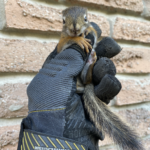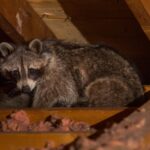Skunks are a common sight in many parts of Canada, known for their distinctive black and white coloring and their ability to spray a powerful odor to deter predators. But what do skunks do during the winter months? Do they hibernate like some other animals, or do they continue to be active throughout the cold season?
Contrary to popular belief, skunks do not hibernate. While they may be less active during the winter, they do not enter a state of torpor where their body temperature and metabolism are significantly reduced. Instead, skunks are considered to be “partial hibernators,” meaning they may slow down their activities and reduce their food intake during the winter, but they do not completely shut down.
One reason skunks do not hibernate is because they are omnivores, feeding on a variety of plant and animal matter. This means they are able to find food throughout the year, even in the winter when other animals may be struggling to find sustenance. Skunks will forage for insects, fruits, and seeds, and may also prey on small rodents and birds.
Another reason skunks do not hibernate is because they have thick fur coats that help them stay warm in cold weather. They may burrow underground or seek out sheltered spots, such as abandoned buildings or rock crevices, to escape the worst of the winter weather.
In summary, skunks do not hibernate like some other animals. They may be less active during the winter and may need to adapt their behavior to find food and stay warm, but they do not enter a state of torpor. So the next time you see a skunk in the winter, don’t be surprised – they’re just adapting to the cold season like any other hardy animal.
For more intriguing “skunk facts,” there’s plenty more to explore about these unique creatures.









